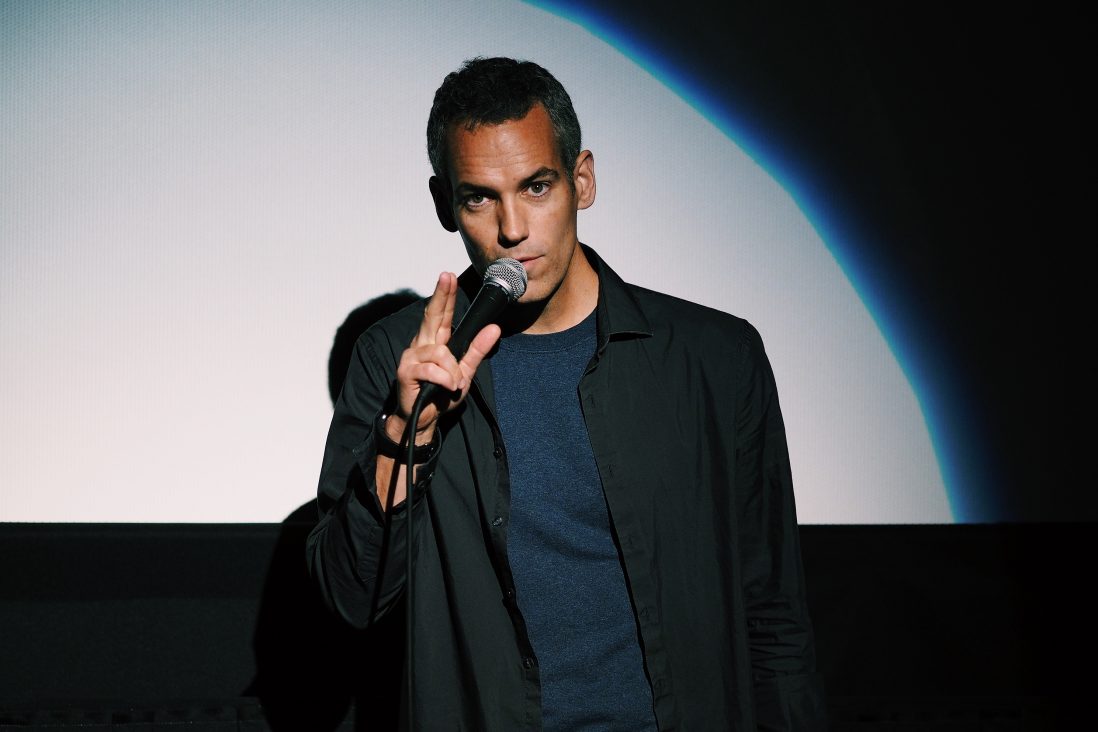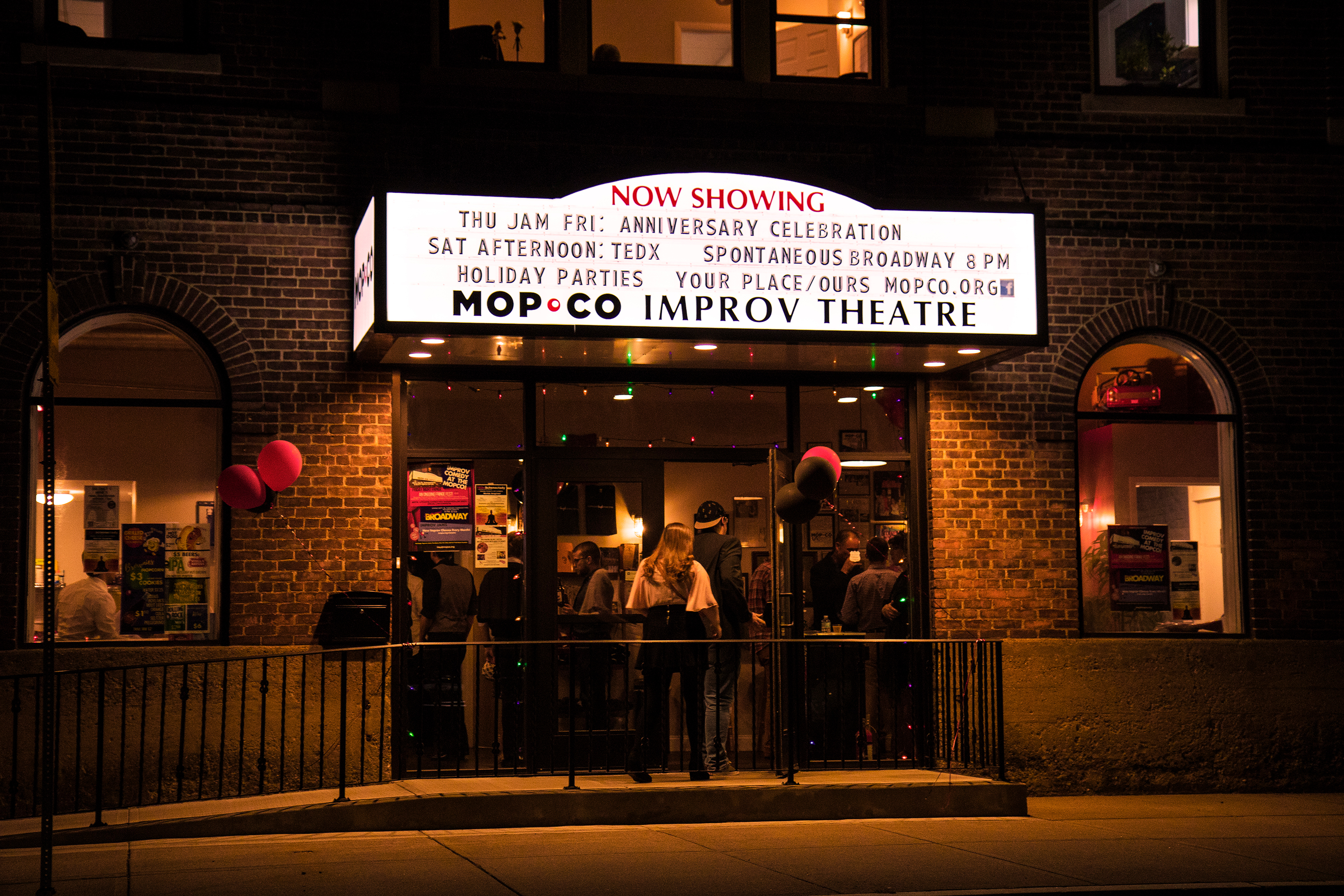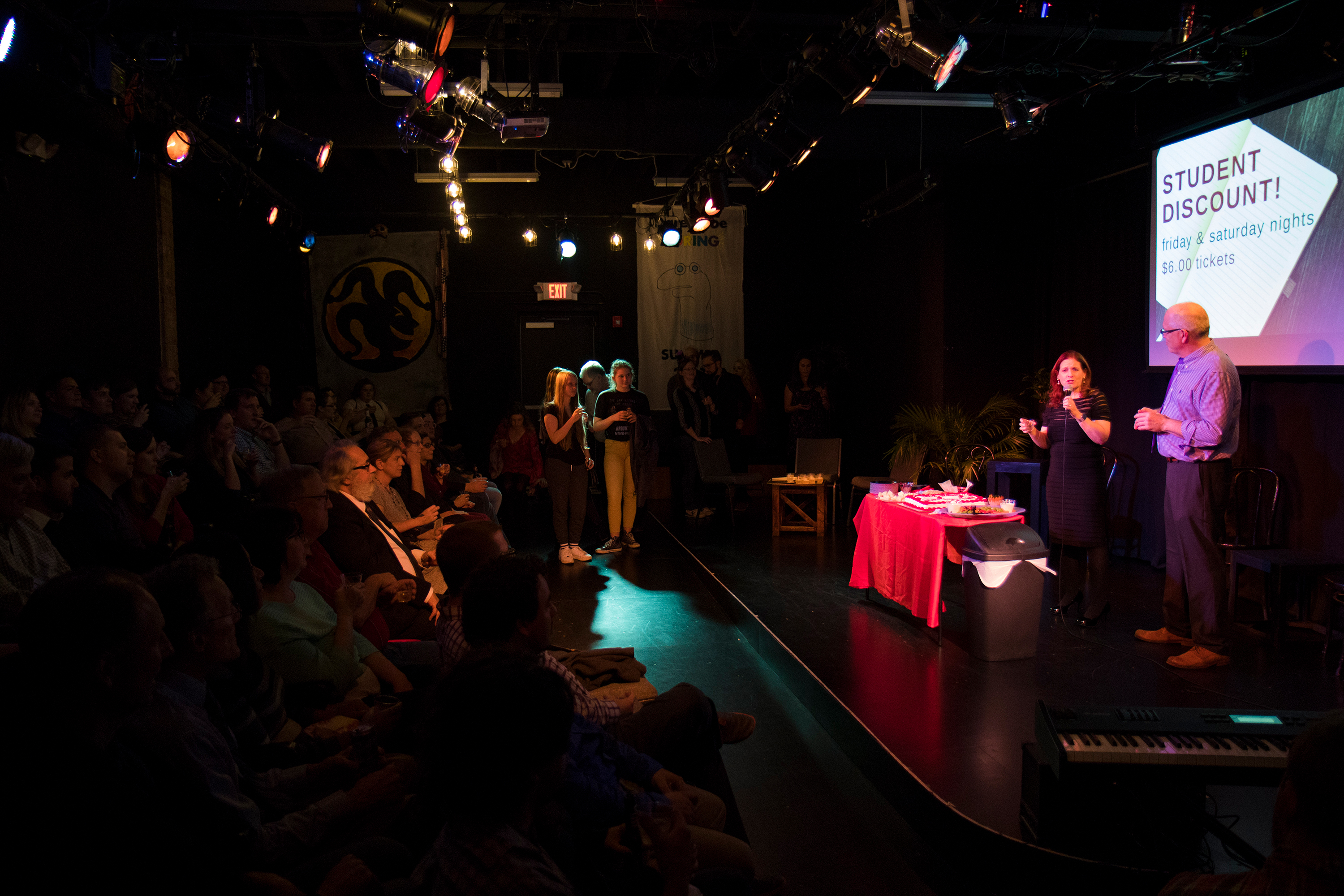Healing with humor
Healing with humor

A few years ago, Moody McCarthy was waking up in the middle of the night to rehearse his standup routine. McCarthy was nervous about performing on Late Night with David Letterman. But all those midnight rehearsals paid off. “Just doing that show and then being happy with the way it went was like a real-life thrill,” McCarthy says.
McCarthy has been a comedian for 25 years. Originally from Syracuse, he’s been based in New York City for 18 years. His favorite part of the job is that he gets to travel around to perform his standup. But McCarthy is currently busier as a dad than a performer. Like most in the performing arts, he’s had shows canceled. Fortunately, because his wife has a steady marketing job, he’s not in financial distress from the more than six weeks of cancellations.
The situation hasn’t transformed his art just yet, but he’s thinking of ways to pull inspiration from it. That may come in the form of new material in his standup or videos on social media. “I’ll probably put my kids in them, which I normally wouldn’t do, but they’re very funny and I need someone to bounce off of in the videos,” McCarthy says, adding that he’s received calls from comedy clubs to perform remotely through Zoom video conferencing.

As comedians like McCarthy adapt to this coronavirus moment, theaters and clubs have also had to adapt. The Mopco Improv Theatre in Schenectady, for example, has moved to a remote model. Some in-person corporate training controlled by their clients has been cancelled for now, but everything else, including the theatre’s improv classes and shows, have all moved online.
Livia Walker, program coordinator and performer for Mopco, says it has been a learning curve, but, as improv performers, they are used to adapting. “Improv is all about not pre-planning and pivoting and adjusting and not being afraid of things changing, and going with the flow,” Walker says.
Walker says that the move to online isn’t just an opportunity to try something new, it also allows the venue to pull an audience and attract students outside of their immediate area. “I have family all over the country and for the first time, they’re able to see what we do and experience that,” she says, “and that’s been really wonderful.”

Some comics are responding with humor about the situation. Comedians Taylor Tomlinson and Sam Morril share their new stay-at-home life in a series of short videos called New Couple Gets Quarantined. Comedy show host Trevor Noah has, for the time being, renamed The Daily Show to The Daily Social Distancing Show, which included an interview with the nation’s foremost infectious disease expert, Dr. Anthony Fauci.
Humor may not only help the nation cope, it might also be good for us. Paul Osincup, president of the Association for Applied and Therapeutic Humor, explains that laughing can release chemicals in the brain – dopamine, oxytocin, serotonin and endorphins – that can help reduce stress. “It lowers blood pressure, decreases muscle tension, and actually something that relates to what’s going on now, it actually is really good for our immune system because it boosts T-cell production,” Osincup says. “We get these benefits not just when we laugh, but also just when we find things amusing.”
Osincup suggests writing down things you found amusing at the end of the day, finding funny videos during your breaks, and sharing funny memes with a friend. “Humor actually sparks connection between people,” he says. “We’re 30 times more likely to laugh in the presence of other people than we are by ourselves. So, if you feel like you’re not laughing enough, then get on Zoom and talk with some friends or do something fun.”

This article is part of the Fermata: Arts and Culture in the Time of Coronavirus series reported by students in the Critical Writing course at the Newhouse School. Fermata features stories on the impact of the pandemic on a wide range of artists and cultural figures, from musicians and comedians to restaurateurs and boutique owners.






